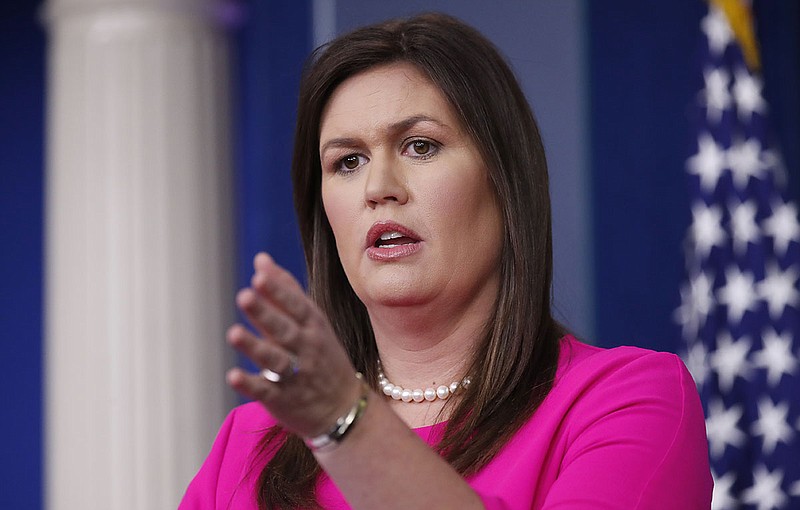The problem with Donald Trump being Donald Trump is the law of unintended consequences.
When he paints in language with a superlative broad brush, as he frequently does, people, businesses or organizations can and do get hurt.
On one hand, Trump has described himself as "the greatest jobs producer that God ever created," his golf courses as "the best courses in the world" and said that "nobody loves the Bible more" than he does.
On the other hand, he has described Mexicans collectively as "criminals" and "rapists," said in U.S. history "there's never been a secretary of state so bad as Hillary [Clinton]" and called the national news media "the enemy of the American people."
It is the last of those phrases on which we rise.
Now, Trump's right that some Mexicans have been "criminals" and "rapists." The point he wanted to make near the start of his 2016 presidential campaign was that some illegal immigrant Mexicans who have come into the U.S. and stayed have perpetrated horrific crimes, and that's why the Southern border needed to be tightened.
But that's not what he said.
And Trump's right that Hillary Clinton was not a very good secretary of state, but we're fairly certain he didn't take a historical look at nearly 230 years of presidential appointments. And Clinton's successor, John Kerry, may, in fact, have been worse.
But that's not what he said.
Shortly after taking office in January 2017, Trump said the press was an "enemy of the American people." As recently as last month, while flying to Finland for a summit with Russian President Vladimir Putin, he said "much of our news media is indeed the enemy of the people."
At least he qualified the latter statement.
Now, we understand his frustration with much of the national media, which has demonstrated a bias against him and most Republican presidents before him in the modern era. Many members of those outlets are educated at schools where professors spout anti-conservative rhetoric, and they have learned to think, report and vote in that milieu.
But until Trump, Republican presidents and most GOP politicians didn't publicly take issue with the bias and remained relatively unruffled by slanted reporting. But Trump, already in the media crosshairs because of his upset win against media darling Clinton, wasn't going to take it. So his criticism came fast and has been unrelenting.
Yet, he probably doesn't mean the Grand Island Independent newspaper in Grand Island, Nebraska, and KXBM-TV in Bismarck, North Dakota, are the enemy of the American people.
But that's not what he said.
When presidents speak, people listen, because, presumably, a president will have the best interests of the people of the country at heart. What a president says should inform and inspire. Thus, a president's words always should be chosen carefully, evenly and accurately.
When Trump says the news media is the enemy of the people, we feel that keenly. We wonder how writing about a home run in a junior high school district baseball tournament or describing the placement of a new monument at the Chattanooga National Cemetery or depicting the heritage of a 200-year-old local Presbyterian congregation or trumpeting the advancement of the United Way of Greater Chattanooga is consistent with being the enemy of the people.
If the president said it, though, many believe it to be true. So the Chattanooga Times Free Press and other purveyors of good, solid local news reporting, opinion, feature stories and sports information are lumped in with The New York Times, the Washington Post, CNN, MSNBC and the other outlets that the president and many others - with some reason, frankly - think are the enemy.
Yet, the existence of the media - then commonly known as "the press" - was so revered by the Founding Fathers that they enshrined its protection in the very first amendment to the United States Constitution. And the men who saw to that inclusion weren't always happy with what was written about their exploits. Far from it. But they felt it important that a free and unfettered press - not controlled by the government, as we see still in some places in the world today - would exist and flourish in their new country.
President Trump is popular in Tennessee, and with many readers of this newspaper and this page. He has taken many actions that we support, and he espouses many positions that we believe resonate with the majority of people in the country.
We don't begrudge him calling out those entities he believes have shown bias, but we feel his term-long use of the phrase "enemy of the people" has been deleterious to a press that has, by all rights, served the country well since its founding.
We would encourage President Trump to be more judicious in his language, more fair in his criticism and more reserved in his targets. The heritage of a free press deserves at least that.
